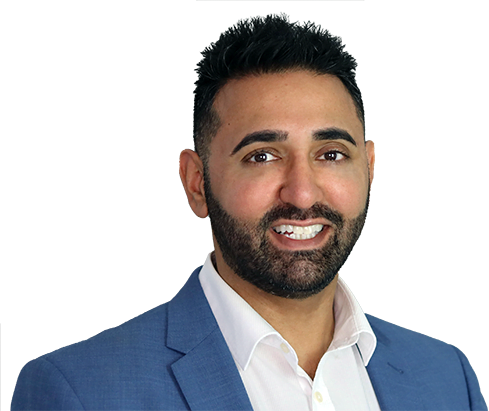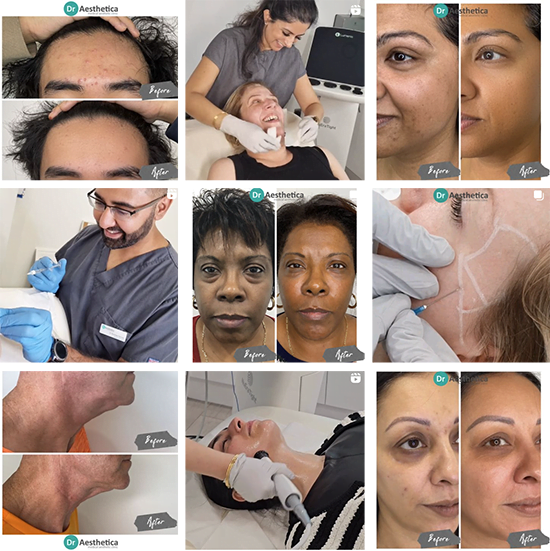While growing up may be inevitable, ageing is not. There will come a point in every woman's life when she sees fine lines on her face, or notices she just doesn't look as fresh as she once did.
The question on many women's minds, especially as they surpass the age of 30, is, "What age do you start looking old?"
The answer isn't clear-cut, as it is different for every woman. For some, they may notice fine lines and wrinkles in their 20s. Others may be blissfully unaware of their ageing until they hit their 40s.
While it is different for every woman, time waits for no man (or woman), and no one gets out of the ageing process unscathed.
Read on for a detailed look at when people start to look old.
What Age Do You Start Looking Old?
For most people, it is a process that you don't notice, much like growing up or losing weight. If you look at yourself in the mirror every day, the small changes may not be obvious. Over time, they will become glaring and are often more noticeable to those who haven't seen us in a long while.
Each woman's process is different. You may notice that you know some people who seem not to age, or age more slowly. This is partially due to genetics, and some people simply being "luckier" when it comes to their skin's ageing.
But that doesn't mean they won't age on some level, even if it isn't as quickly as everyone else.
When Does Ageing First Start Happening?
Your 20s are a stressful decade. You're learning to find your feet, navigating romance and jumpstarting your career. While ageing might be the last thing on your mind, it actually begins before you hit 30.
In your 20s, your skin becomes drier. This is fantastic for those who have contended with acne for most of their teenage years. But this means that fine lines and expression lines might start to rear their ugly head.
Your body also stops producing some of the antioxidants that keep your skin youthful. This means it's time to start using masks and treatments that are enriched with vitamins to maintain your dewy complexion.
What About My 30s and 40s?
Most women see their 30s and 40s as the first decades in which they are "old." This is due to society's obsession with youth and beauty, and the message that women over 30 are "past their expiration date."
In your 30s, ageing starts accelerating, though it may not be noticeable for every woman. For many women, they notice the change over time or get hit with the cumulative effects all at once.
During this decade, your skin gets even drier than it was in your 20s. Your metabolism starts to slow down (which can also mean unwanted weight gain), and your body stops producing as much collagen.
Collagen is what keeps the skin looking fresh and elastic. You'll find many anti ageing products advertise that they use it in their formula. But B3 (or niacin) also becomes essential during this time in your life and using cream is rich with the vitamin can help keep your skin as fresh as possible.
You might also notice your eyes becoming puffier in your 30s, and that dark circles take longer to go away.
In your 40s, the life cycle of skin cells slows down dramatically, and the overall dryness on your face increases severalfold. Retinol and glycolic acid both help kick your cells into gear and prolong their lifespans.
You'll also notice in your 40s that the lines on your face are much more noticeable. By now, you might have sunspots, broken capillaries, wrinkles around your eyes and mouth and other areas of your face. Too much sun exposure when you were younger will have definitely caught up to your skin and may be rearing its ugly head.
50 and Beyond
Although 50 isn't as old as it once was by societal standards, you'll be entering your golden years. In addition to the issues mentioned above, like the cell life cycle, decreasing dramatically and increasing dryness, skin barrier functions weaken.
The break down of skin barrier functions typically coincide with menopause, making that time in your life a particularly stressful one.
Once the skin barrier function has started to break down, it can become almost impossible to maintain moisture, and your skin will become incredibly dry. This is why it is essential to have been using moisturiser for several years before hitting this milestone.
Beyond the age of 50, ageing continues to accelerate at a more and more rapid pace. While you'll never be able to stop the ageing process completely, exercising and taking good care of your skin, at any age, will help delay the process.
Staying out of the sun and wearing high factor sunscreen is also an important way to not only avoid skin cancer but also slow down the process of ageing.
What Happens to the Other Parts of Your Body as You Age?
We've discussed your skin at length, but your organs begin to age as you get older as well. Your brain, for example, starts declining at the age of 24. If you're not as sharp as you once were, blame the hands of Father Time.
Your kidneys and lungs start to age around 35, while other organs in your body, like your heart and muscles, start to exhibit their wear and tear. By age 30, you begin to lose muscle faster than you can develop it.
Everyone Will Age, But You Can Age Gracefully
Although you can't escape ageing, you can slow it down considerably by taking good care of your skin. There isn't a particular answer to the question, "At what age do you start looking old?" This is due to individual factors that cause people to age, and even what individuals consider to mean by "looking old."
Besides taking care of your skin, eating healthily and working out are incredibly crucial for ensuring that your body doesn't decline as you age, either.
Get in touch with us for a comprehensive assessment and treatment for ageing.


